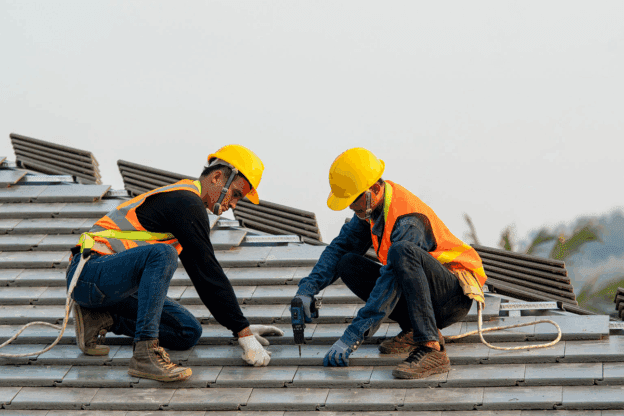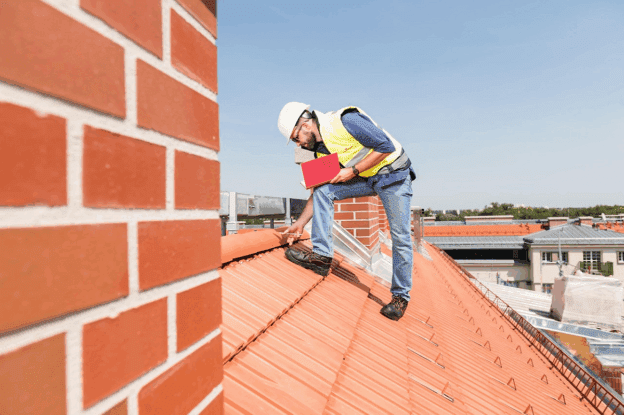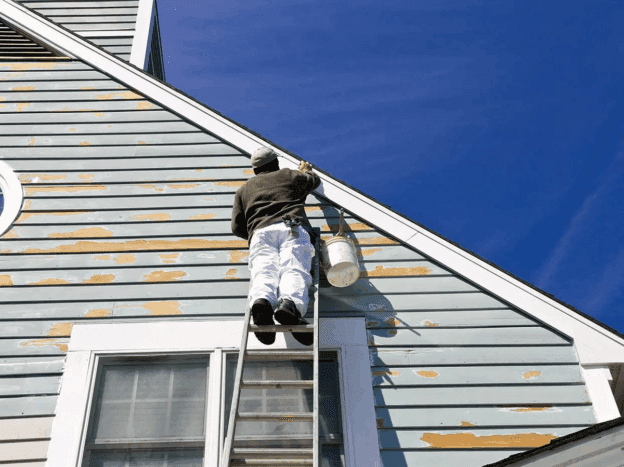
Essential Roof Leak Repair Tips Every Homeowner Should Know
A roof leak can cause significant damage if left unchecked, leading to expensive repairs and unwanted stress. Identifying and fixing a roof leak early is crucial for maintaining a safe and secure home. Whether it’s a small drip or a major leak, understanding the steps to effectively address the problem can save both time and money. In this guide, you’ll learn essential roof leak repair tips that will help prevent further damage, protect your home, and ensure your roof remains in top condition for years to come.
Inspect Roof Regularly for Damage
Regular roof inspections are essential to catching problems early. Over time, weather conditions like storms, hail, and high winds can cause wear and tear on your roof. Even small cracks or missing shingles can eventually lead to major leaks if left unchecked. Make it a habit to inspect your roof at least twice a year—once in spring and once in autumn. Look for damaged or loose shingles, signs of wear around vents and chimneys, or areas that may have accumulated debris. By staying proactive with inspections, you can address issues before they cause significant damage to your home.
Address Leaks Quickly to Prevent Spread
Addressing roof leaks quickly is crucial to prevent further damage. The longer a leak goes untreated, the more extensive the repairs will become, potentially affecting other areas of your home.
- Identify the leak as soon as possible: Early detection of leaks allows for timely repairs. By identifying the leak quickly, you can limit the amount of water damage, preventing structural harm and costly repairs.
- Use temporary fixes to control the spread: If a professional isn’t available right away, use tarps or sealants as temporary solutions. These methods can help manage the water flow, reducing further damage until permanent repairs are made.
- Check for hidden leaks in hard-to-reach areas: Leaks can often travel along beams or insulation, spreading further than their visible origin. Inspect the surrounding areas for signs of water damage to catch any hidden issues.
- Prevent mold growth by addressing leaks quickly: Water that isn’t promptly dealt with can lead to mold and mildew growth. This can be harmful to your health and require extensive remediation if left unchecked.
- Minimize water damage to insulation and drywall: Water can ruin insulation and drywall, both costly to replace. By addressing the leak quickly, you can avoid the expense of replacing these materials and protect your home’s interior.
Timely action reduces repair costs and protects your home from further harm. Always stay vigilant for potential leaks.
Use Quality Materials for Repairs
When repairing a roof leak, it’s crucial to use high-quality materials. Cheap patching products may offer a quick fix, but they often fail to stand the test of time. Invest in durable roofing materials, such as high-quality shingles, waterproof membranes, and sealants designed specifically for roofs. These materials will not only provide a more lasting solution but also ensure your roof remains watertight for longer. Opting for quality materials also gives you peace of mind, knowing that the repairs won’t need to be redone shortly after they are completed.
Seal Cracks and Gaps Properly
Sealing any cracks or gaps on your roof is essential for preventing water from seeping in. Even small openings can allow moisture to penetrate, leading to leaks and water damage over time. Be thorough when inspecting seams, joints, and edges of your roof, as these are the most common places for cracks to develop. Use a strong, flexible roofing sealant that’s designed for outdoor use and can withstand the elements. Properly sealing these areas will help keep your roof secure and reduce the chances of future leaks forming, saving you from unnecessary repairs.
Check Flashing Around Chimneys and Vents
The flashing around chimneys, vents, and skylights is a critical area that often gets overlooked during roof inspections. These parts of your roof are particularly vulnerable to leaks since they have joints and seams where the roofing material meets a structure. Over time, the flashing can wear out, become loose, or even rust, creating gaps for water to enter. It’s essential to regularly check the condition of your flashing and replace or reseal it as needed. Keeping these areas well-maintained can significantly reduce the risk of leaks and ensure the integrity of your roof.
Clean Gutters to Prevent Water Back-Up
Keeping gutters clean is a simple yet effective way to prevent water back-up and potential roof leaks. Regular maintenance ensures water flows freely, protecting your roof and home from damage.
- Prevent Roof Leaks: Clogged gutters cause water to overflow, potentially seeping into your roof and attic. By cleaning your gutters regularly, you can avoid these leaks and prevent costly repairs down the line.
- Avoid Water Damage to Walls: When gutters are blocked, water can spill over and trickle down walls, causing damage to your home’s exterior and even seeping into the interior, leading to mold and mildew.
- Protect Landscaping from Erosion: Water spilling over clogged gutters can wash away soil, damaging your garden and landscaping. Clean gutters prevent this erosion, preserving the beauty and integrity of your outdoor space.
- Improve Gutter Lifespan: Regular cleaning reduces the risk of rust and corrosion, which can shorten the lifespan of gutters. By keeping them clear, you ensure they remain functional and last longer.
- Prevent Pest Infestations: Standing water in blocked gutters can attract pests like mosquitoes, rodents, and insects. Cleaning your gutters eliminates these breeding grounds, helping to keep unwanted critters away from your home.
It’s a simple task that offers significant protection against water damage, pests, and erosion, ensuring your home stays safe and dry.
Patch Small Leaks Before They Expand
Small roof leaks may seem insignificant at first, but they can quickly become a bigger problem if not addressed. A tiny leak can lead to water pooling in your attic or inside your walls, creating the perfect environment for mold and mildew to grow.
Patching small leaks early on can prevent them from spreading and causing more severe damage. If you spot a leak, take the time to patch it with the appropriate materials, such as roof patching compound or waterproof tape. It’s a small effort that can save you from costly repairs in the future.
Ensure Proper Roof Ventilation
Proper roof ventilation is essential for extending the lifespan of your roof and preventing leaks. Without adequate airflow, heat and moisture can build up in your attic, causing shingles to deteriorate faster and promoting the growth of mold.
Poor ventilation can also lead to ice dams in colder climates, which can force water under shingles and cause leaks. To ensure your roof is well-ventilated, check that soffit vents, ridge vents, and attic fans are in good working condition. Good ventilation reduces the risk of moisture build-up and helps keep your roof and home dry and comfortable.
Check Attic for Signs of Water Damage
The attic is a key area to inspect when looking for signs of water damage. Early detection can prevent extensive damage and costly repairs down the road.
- Look for Water Stains: Water stains on the ceiling or beams indicate that water is entering from the roof. These stains often appear as dark patches that may spread over time if not addressed promptly.
- Inspect Insulation for Dampness: Damp or wet insulation is a clear sign that moisture is infiltrating the attic. Wet insulation loses its effectiveness and can promote mold growth, making it essential to replace damaged sections.
- Check for Mold or Mildew: Mold and mildew thrive in moist environments. If you spot a musty smell or visible mold growth on the attic’s surfaces, it suggests a persistent leak.
- Examine the Attic Floor: Water can trickle down through the roof and accumulate on the attic floor, leading to potential damage. Keep an eye out for areas of wet or warped flooring.
- Monitor for Pooled Water: Pooled water in the attic, especially after heavy rainfall, is a clear sign of leakage. This water can damage structural components and increase the risk of mold formation.
Regularly checking your attic for water damage can prevent costly repairs. Identifying issues early allows for effective roof leak repair, ensuring your home stays dry and safe
Hire a Professional for Complex Repairs
While minor roof leaks can often be repaired by homeowners, more complex issues require professional expertise. If the leak is extensive or located in hard-to-reach areas, it’s best to call in a roofing expert. Professionals have the tools and experience to assess the damage, make accurate repairs, and ensure the job is done safely. Roofing work can be dangerous, and improper repairs can lead to further damage. Hiring a professional for complex roof leak repairs can save time, money, and avoid the risk of exacerbating the problem.
Staying on top of roof leak repair is crucial for maintaining the safety and integrity of your home. Regular inspections, quick action, and using quality materials can go a long way in preventing costly damage. Whether you’re sealing small gaps or addressing more complex issues like flashing or ventilation, taking the right steps now can save you from bigger headaches later. For any roof leak repair needs, don’t hesitate to reach out to professionals who can ensure the job is done right.
Contact Tidal Remodeling at +1 (760) 990-7890 for expert assistance with roof leak repairs and maintenance. Trust the specialists to protect your home and keep your roof in top condition.



